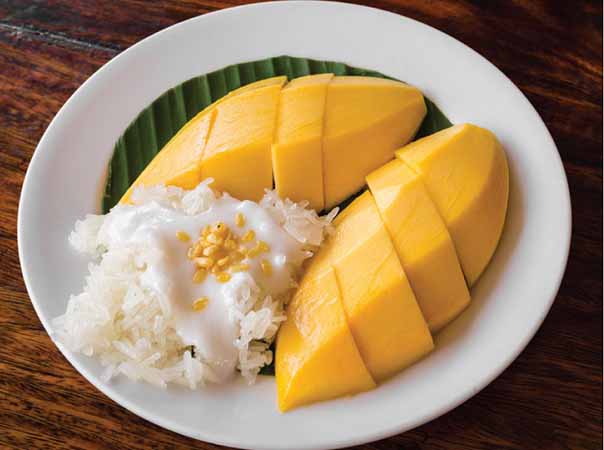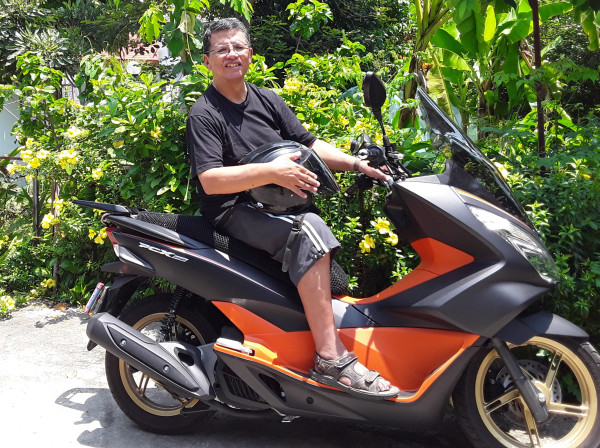Banking and Money in Thailand
Originally posted on November 1, 2010
Money
The unit of currency of Thailand is the “baht”. The baht is divided into 100 satang. 1 salung = 25 satang. Thai coins come in 1 baht, 2 baht, 5 baht, and 10 baht. The colorful Thai paper money comes in 20 baht, 50 baht, 100 baht, 500 baht, and 1,000 baht notes. All notes and coins are adorned with a picture of the current king.
Thai Bank Notes
You’ll also see smaller, copper colored coins of 50 and 25 satang but they are not easy to spend. I just seem to get them as change at the supermarket and never know what to do with them. They remain in a jar on my dresser.
BTW, the idiom “3 salung” (the equivalent of 75 satang or ¾ of a baht) means “crazy” or “intellectually slow” since 3 salung is not a complete baht, as in the English idioms “not all there”, or “not playing with a full deck”.
Originally a baht was a unit of weight and for certain things, namely gold; it still is. Nowadays a baht is the equivalent of about 15 grams. The price of gold in Thailand is not given in ounces as it is elsewhere but in how much per baht weight. As an example, as of today the price of gold is 19,100 baht per baht, where the first baht is a unit of currency and the second a unit of weight.
Bank Cards
ATM, debit, and credit cards are all available from most banks. You can also use your ATM from your bank from back home at many local ATM machines. What fees you will be charged depend on which ATM machine you use, which bank you have your home account with, and what the current exchange rate is.
I use a local bank’s ATM card to withdraw money that I use to pay everyday bills. I use a local bank card to pay for more expensive items. The card I have is sort of a combo credit/debit card. It is officially a credit card so the payment isn’t immediately taken out of my account but at the end of each month the bank will automatically pay off the outstanding balance. So I never have to pay a late fee or interest on the card.
Note on the use of checks: These are not very popular in Thailand and in fact have never seen them used except at a bank. Yesterday I received Check payment for a column I write for a local magazine. It was made out to “cash” and I had no problem cashing it at the bank (had to have my ID though). You might want to bring your checkbook from back home with you but it will be hit or miss whether a bank will accept them or not.
ATM machines are everywhere
Bank accounts
With Bt500 and a passport you should be able to open a bank account in Thailand.
The idea for this post came from a comment/question from a reader about whether I use a bank account here or one from back home. Here is the question and my answer.
Q: Do you use a Thai bank or do you use an overseas bank? I am wondering where and how to bank when we are in Thailand. When I’ve been there before I just used ATM’s and paid fees back home. Is there an option to eliminate or reduce fees while living in country? Thanks
A: I have both a US and a Thai bank account. My Social Security payment is directly deposited into my US bank. (Note: Bangkok Bank will allow automatic SS deposits but the fees are too high for me.) A few times a year I write a check on my U.S. account and deposit into my Thai bank account for daily expenses here. The cost is about $20. I use Bangkok Bank and they have accepted checks over $100,000, so the amount is no problem as long as they know and trust you. It takes about 6 weeks for a check to clear. A wire transfer would be much quicker, within 2 or 3 days, but the cost is much more; $40 or more each time. There is a limit of $5,000 for each wire transfer if you are not physically present at the bank in the US, but some people get around that limit by working something out with their US bank. I believe that Citibank will allow much larger transfers but there is a specific set up that you will have to go through to get that service. To learn more about Citibank’s wire transfers go here www.citibank.com.
Automatic Bill Pay
Some banks in Thailand offer bill paying services. I get my water, electricity, and phone bills all paid for automatically by my bank. I can check online how much they were and whether they were paid on time or not. I have never had a problem with this service and have never had to pay a utility bill either.
BTW, if you don’t have this automatic bank service, most bills can be paid for at a local 7-eleven store, of which there are thousands all over the country. Thailand has the 4th most 7-Eleven stores in the world.
SWIFT Codes
In order to get wire transfers into your local account you will have to know your bank’s SWIFT code (Society for Wire Intercommunications of Funds Transfer). All banks in the world have one. Check with your bank to see what yours is.
Also, if you are going to get a retirement or a spousal support visa you will be required to have money in a Thai savings account (Bt800K and Bt400K respectively).
When you choose a Thai bank be sure to choose one that understands international transaction. And then make good friends with the bank manager. The better known you are in the bank the better service you will get. That works the same everywhere in the world.
Exchange Rates
Big problem nowadays is the Baht/Dollar exchange rate. It seems to get worse every day. Not great for one living off of dollar denominated Social Security. I am getting at least 10% less per month than when I first started collecting. We are waiting for a little improvement before writing the next check.
I really don’t know where the best place to exchange money is. You’ll probably have to ask around depending on where you will be living. As I said earlier I just write a check and let the bank take care of the rest. The differences are quite small and most fees are okay. I don’t usually use money changers on the street though. But check them out and compare rates. To see what today’s bank exchange rate is click here.
Loans
Officially, foreigners cannot obtain bank loans. That makes buying a condo or car a cash only transaction; that is unless you are buying it in the name of a Thai citizen. Then it is they who have to obtain the loan – which is not that easy.
Things to consider when looking for a bank
- Does someone there speak your language?
- What is their customer service like?
- Do they have online banking?
- Do they have online bill pay?
- How long do foreign checks take to clear?
- Do they have ATMs and where are they located?
- Do they offer debit and credit cards?








